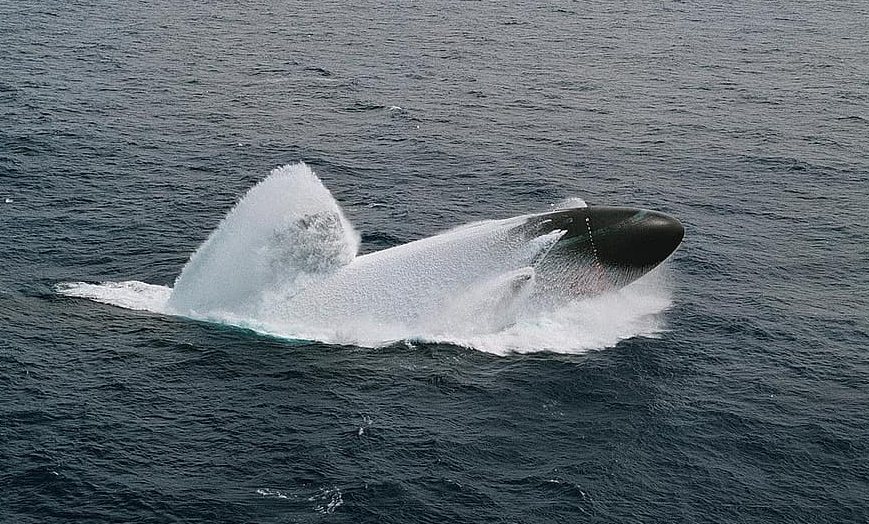October 08, 2021

Under a new agreement, the United States and Britain are to sell Australia nuclear-powered submarines and many fear that will present Iran with a new route to build a nuclear weapon.
The new tri-lateral agreement, announced September 16, is called AUKUS, for the initials of the three countries. It is an enhanced security pact among the three countries. A nuclear sub for Australia is the one concrete program the White House cited in announcing AUKUS. The announcement said it was kicking off an 18-month planning and negotiating period to flesh out a submarine program for Australia.
If Australia gets nuclear subs, it would be only the seventh country to have them India, China, Russia, France, Britain and the United States being the others.
James Acton, co-director of the nuclear policy program at the Carnegie Endowment for International Peace in Washington, DC, told NatSec Daily that the International Atomic Energy Agency (IAEA), the UN nuclear watchdog, has a standard safeguards agreement that excludes naval reactors from its oversight. Simply put, non-nuclear weapons states can declare highly enriched uranium (HEU) for naval propulsion purposes and keep the IAEA from sniffing around that material.
That means Iran could say as it has already that it plans to build a nuclear-powered sub. Then it could shut off IAEA access to stocks of HEU.
US subs are fueled with uranium enriched to 97.3 percent, while power plants use fuel enriched to less than 5 percent and bombs are best with about 90 percent enriched uranium.
Acton said, “I find it very hard to believe that if Australia exercises its right to do this [fence enriched uranium off from IAEA inspectors], then other countries who have nefarious motives won’t also do it,” though he noted no country has ever taken advantage of this loophole yet.
There is widespread concern Iran might be the first. In a sense, Acton said, AUKUS has unlocked the door for Iran to move closer to a nuclear weapon.
Australia had already signed a multi-billion-dollar agreement with France in 2016 to build 12 conventional, non-nuclear submarines for Australia. The AUKUS pact kills that agreement much to France’s furor and means that Australia will be using the same technology as the US and Britain. It isn’t clear if Australia will enrich uranium on its own a very expensive proposition or buy it from the US and UK. But most likely it will import it from the US and UK.
The nuclear subs for Australia are very obviously part of a Western effort to counter China’s naval expansion in the Pacific. The Australian subs will be nuclear-powered but will not hold missiles with nuclear warheads.
Chinese Foreign Ministry spokesperson Zhao Lijian on Thursday slammed the group-ing as a reflection of “outdated Cold War zero-sum mentality and narrow-minded geopolitical perception” that “intensified” a regional arms race and harmed international non-proliferation efforts.
That rhetoric including Zhao’s reference to “cliques” designed to target “third party” countries reflects the Chinese government’s recognition that the US has been able to rally allies in the Indo-Pacific to counter Beijing’s increasingly aggressive moves in the region.
The AUKUS deal makes no explicit reference to China, but two US officials noted that the subtext of the announcement is that this is another move by Western allies to push back on China’s rise in the military and technology arenas.















